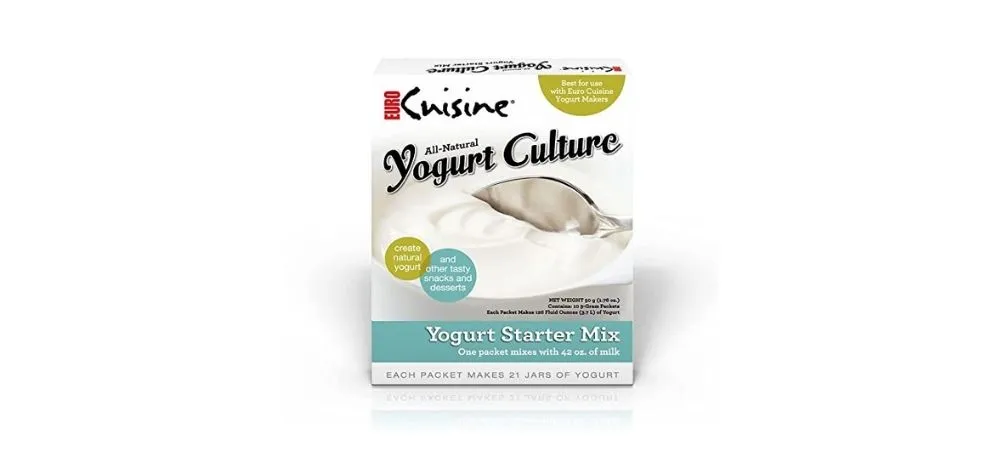Yogurt may be especially beneficial for diarrhea because these types of bacteria contain anti-inflammatory compounds. It can help decrease inflammation in the large intestine, which can reduce fluid secretion and help slow down bowel movement.
Yogurt is a dairy product that is produced by fermenting milk with live bacteria. It contains the two primary species of bacteria that are still found in the human gut after birth—Lactobacillus and Bifidobacteria.
The anti-inflammatory compounds may also affect how glucose is absorbed by intestinal cells, which helps stop diarrhea.
What Type of Yogurt is Good for Diarrhea?
Yogurt with live cultures is good for diarrhea. The label “live cultures” means that the bacteria have not been killed during processing and are beneficial to health.
Can You Eat Yogurt When You have Stomach Flu?
Yogurt, which contains probiotics, may also be helpful for nausea and vomiting caused by the flu.
The flu usually runs its course in about a week. Still, your doctor may prescribe antiviral medications like oseltamivir (Tamiflu) or zanamivir (Relenza) to make the illness go away faster and help prevent severe complications like pneumonia.
However, these medications can cause nausea and vomiting, leading many doctors to prescribe anti-nausea drugs like ondansetron (Zofran) in conjunction with antivirals.
Can You Eat Yogurt When You are Throwing Up?

In most cases, it is acceptable to eat yogurt even if you have been vomiting. The Federal Drug Administration has classified active cultures in food products as GRAS (Generally Recognized As Safe).
For yogurt, as long as the active cultures are not destroyed by heat during processing and don’t contain disease-causing bacteria, they are considered safe.
What Kind of Yogurt is Good for Stomach Flu?
Yogurt containing live cultures can benefit the stomach flu. It will help if you look for food products that say “live & active cultures” on the label. Yogurt containing active cultures can help with nausea and vomiting caused by the flu.
Related Posts:
- Does yogurt give me heartburn?
- Can eating Yogurt prevent diabetes?
- Which is healthiest dairy – Fat, Non Fat, No Fat?
- Is yogurt good for high blood pressure?
- Is it ok to have yogurt if one is allergic to cow’s milk?
- Is yogurt bad for cholestrol?
Is Yogurt Good for Stomach Issues?
Yogurt is often recommended as a way to treat constipation because it contains probiotics. Probiotics are bacteria similar to the beneficial bacteria in your gut, and consuming them (with food or in supplement form) can help restore their levels. Yogurt containing live cultures is good for diarrhea.
How Does Yogurt Work for Stomach Issues?
Yogurt contains probiotics, which are similar to the beneficial bacteria in your gut, and consuming them (with food or in supplement form) can help restore their levels. Probiotics can help with constipation and may be helpful for diarrhea as well. Yogurt is often recommended as a way to treat constipation because it contains probiotics.
Does Yogurt Make Diarrhea Worse?
Yogurt can cause an increased amount of bacteria to stay in the small intestine and worsen watery diarrhea.
Yogurt does not make diarrhea worse. Yogurt containing live cultures can benefit the stomach flu. Look for products that say “live and active cultures” on the label. Some kinds of yogurt with live cultures, including Lactobacillus acidophilus, can even treat some cases of diarrhea. Other strains, like Bifidobacteria, may even be helpful for constipation.
What Kind of Yogurt is Good for Diarrhea?
Yogurt containing live cultures can benefit the stomach flu. Look for products that say “live & active cultures” on the label. Some kinds of yogurt with live cultures, including Lactobacillus acidophilus, can even treat some cases of diarrhea. Other strains, like Bifidobacteria, may even be helpful for constipation.
Is Yogurt Good for a Loose Stomach?
Yogurt is rich in probiotics, which are beneficial bacteria. Because of this, it may be helpful for loose stools. However, there isn’t any hard evidence to show that yogurt can help constipation or diarrhea.










